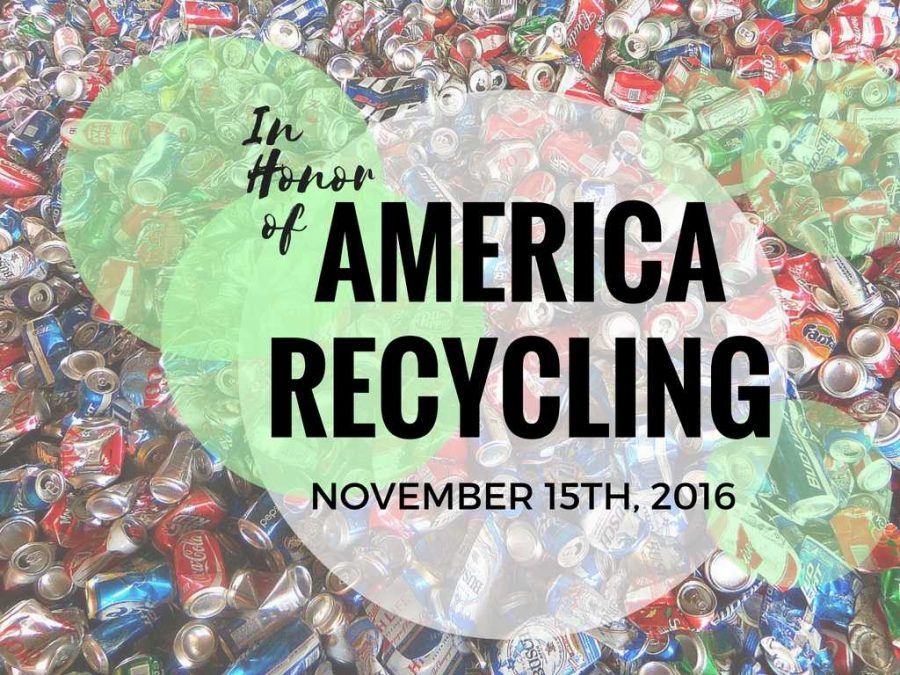November 15th, 2016 is National America Recycles Day.
America throws too much into the garbage. From soda cans to scrap paper to plastics, most of our unused waste doesn’t quite make it into that little blue bin. We find ourselves more interested in whether or not the quarter-filled plastic water bottle sticks the landing after we flip it (cue the incessant cheers of all 12-year old boys in a twelve mile radius) than if it makes it into the recycling bin afterwards. America has a serious problem with recycling, and it’s not a fact unknown to most– currently, around 2.7 million tons of aluminum are sent to landfills in the US each year, 50 percent of which go on to actually undergo the process of recycling. Still leaving 1.35 million tons of cans to sit on the earth unused, this weight is the equivalent of 11,571 blue whales, 1,929 Christ the Redeemer Statues from Brazil, or approximately 130 Eiffel Towers.
“Low landfill fees and a fragmented waste-management system have kept the country’s recycling rate at around 34% for two decades—far lower than most rich countries. This waste comes at a cost. Making cans from recycled aluminium, the most valuable container material, requires 95% less energy and creates 90% less greenhouse-gas emissions than virgin stock, yet more than 40 billion aluminium cans hit America’s landfills every year. The country chucks away $11.4 billion worth of recyclable containers and packaging annually.” The Economist
The fruits of our decisions surrounding recycling are not tasty; muddied landscapes, poisonous and garbage ridden rivers and lakes, infertile soil, animals tangled in our plastic waste (take Lovelace from Happy Feet, for example), cities streets reeking of trash and skies thick with smog. A result of our carelessness as well, biological magnification does not bode well for all you fish eaters out there. If we want to reverse the consequences of our actions, America needs to address how it handles recycling as soon as possible.
Diverting recyclable materials from landfills would save America a pretty penny; in 2013, cities spent close to $5 billion on landfill fees. Alongside its economic benefits, recycling metal and other materials have enormous environmental benefits; recycling cans saves 74% of the energy used to produce them.
“A lot of people think that one person can’t make a difference, but in the case of recycling, one person can make all the difference. On average, each American produces approximately 1600 pounds of waste each year. As much as 1100 pounds of waste could be recycled each year per person – that’s over half a ton just for one person! A family of four could reduce waste by over two tons in a year – just by the simple act of recycling.” Mid City Scrap
If we want to go beyond simply preserving this earth as it is and instead better it for future generations, America needs to start now– that’s why the National Recycling Coalition has been celebrating National America Recycles Day since 1997, pledging to “Make America Beautiful Again.” Personal pledges can be made for those who are committed to reducing their waste and making earth-friendly decisions.
Here are seven recyclable household items you may have previously thought to belong in the trash– and where to recycle them!







